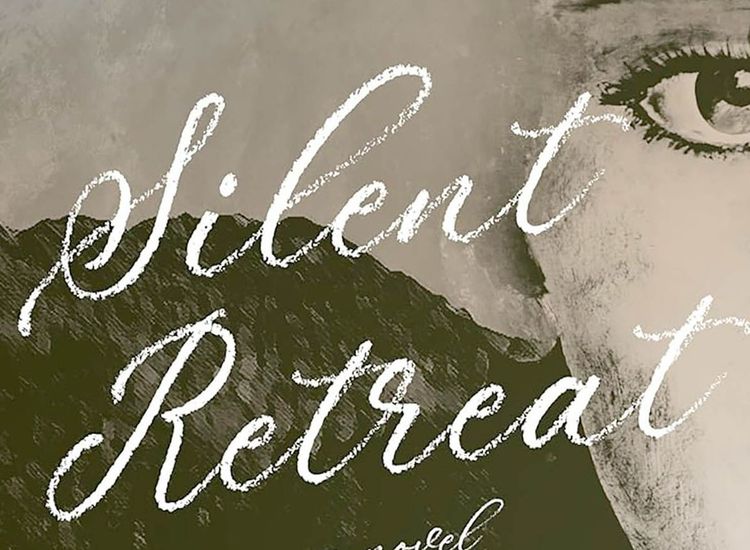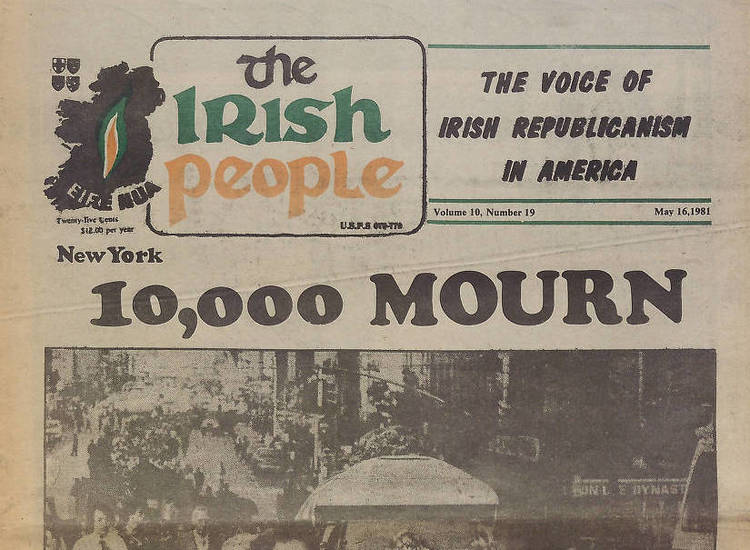Michelle Dooley Mahon’s “The Scourge” is, according to one reviewer, an “astutely observed piece [that’s] well worth a look especially if hope is what’s needed.” PHOTO BY CAOLAN BARRON
By Peter McDermott
Wexford is back at the 1st Irish Theatre Festival, specifically in the form of Michelle Dooley Mahon’s “The Scourge,” which has a limited engagement at the Irish Rep, beginning on next Wednesday, Jan. 22, and continuing through Feb. 2.
Executive Director Elizabeth Whyte pointed to other contributions from the Wexford Arts Centre to the annual New York festival hosted by the Origin Theatre Company.
“Previously, we brought over ‘WexFour,’ short plays by John Banville, Eoin Colfer, Billy Roche and Colm Toíbín, and ‘Tales from Rainwater Pond’ [by Roche], which I directed,” she said.
“The Scourge” is even more Wexford Arts Centre’s baby than those projects; the above-named authors are nationally and internationally known, whereas in this instance it encouraged Mahon to develop her self-published autobiographical “Scourged” into a work for the stage entitled “The Scourge.”
When it premiered in Wexford in 2018, the Sunday Times said, “Mahon's lyrical monologue is delivered in a rapid-fire style,” adding, that it is “deftly directed by Ben Barnes” and an “astutely observed piece [that’s] well worth a look especially if hope is what’s needed.”
“It’s themed around her experience looking after her mother with Alzheimher’s disease,” Whyte said, “or what Michelle refers to as ‘death by a thousand cuts for up to 10 years.’”
Whyte is no stranger to the New York arts scene, having been involved with the Rep, Theatre Nua and the women’s collective Banshee as writer, director and actor when she lived her from 1995 through 2001.
Said the executive director of Wexford Arts Centre, which celebrates its 45th anniversary this year, “I look forward to returning in the role of producer.”
Ahead of Whyte and Wexford Arts Centre’s return to New York, the Irish Echo asked the playwright Michelle Dooley Mahon a few questions about “The Scourge.”
Irish Echo: Tell us the background to the development of the play?
Michelle Dooley Mahon: The play was developed from the reading of my memoir “Scourged” by Elizabeth Whyte. She consumed the tome that is a pared-down memoir in a single sitting. She believed it would make a hell of a stage play if she could corral the scourge herself into writing it to a deadline, if she commissioned it.
Elizabeth likes to support local artists and was interested to see what a female playwright could accomplish.
So all that happened. And I was awarded an Arts Council Bursary to keep the plates spinning while I wrote six or seven versions trying to work out how to write a theatre play.
I presented an incredible first draft of purple prose to renowned theatre director Ben Barnes, formerly of the Abbey, who advised to maybe take out 13 or 14 sections of it and try to create a structure. It was then I found Vonnie Dooley on a Carlow road. She became the key to unlocking the dramatic potential of the unspoken words. With dramaturgical support from Ben, who then came on board to direct an unknown, and with the heroic efforts of the now producer Elizabeth, "The Scourge" was born.
How much dramatic license did you allow yourself in the book and the play?
I didn't allow myself dramatic license insomuch as I only told the truth, in what I hope the audience sees as an authentic, unflinching way. There are many scenes that were lifted from the drafts as they were seen as a little too much.
Aside from the emotional impact of looking after your mother, how did your life change on a day-to-day basis?
The fallout from witnessing this illness in particular is outrageous. And yet there was a stigma when I first began blogging about this in 2009. People would remark "You're very brave" to share my mother’s story or describe her descent through the layers of illness, as she had Alzheimer’s and Parkinson’s. Or to out myself on a public forum in the same year as being manic and bipolar, with free cycling highs and an inability to close my eyes for longer than moments. I gave up work as a hotel manager to care for Siobhán two years into her decade of illness. It was obvious my dad was finding it hard to cope with sundowning [whereby the ill person’s confusion and agitation gets worse in the afternoon and evening]. I also stopped caring about my own person, as all the caring was being used up on my mam. It was a tough time, emotionally, physically, and financially.
Caregiving has come up as an issue in the Democratic presidential primaries in this country, with Senator Amy Klobuchar, whose father suffers from Alzheimer’s, proposing support for family caregivers. Do you believe enough is being done for in terms of government support?
I applaud the candidate for addressing any and all issues to deal with Alzheimer’s in particular. It is the cruelest of things to lose a family member to this illness, to witness the implosion of a personality and to have to rehome them in care facilities where often they are just left sitting and sedated. I believe an entirely new type of dementia training should be mandatory to help carers and families reach the space the loved one is in, to holistically and spiritually allow some dignity and some access for patients with Locked in Syndrome. Music. CBD. Massage. Reiki and assistance with accessing medication which if offered early enough (usually when a family is in denial) would dramatically halt the progression of the disease. In “Scourged” I tried to write a how-to guide, as well as a what-not-to-do guide, for example families often try to take people on a last holiday or a road trip, while well intentioned this is a massive curve to throw at someone who is completely out of their routine and depth. These sound bites were hard earned.
Your own health battles feature as a theme in the play. Could you tell us how in outline?
I have learned to turn my mental health issues on their head with the aid of meditation and visualization. I spent 40 years of my life careening around the place trying to find who to be in the world, or how to be in the world. I have found a way of turning off the monkey mind and being present in the now. Of course ego will always try to pull you back into a space of negative energy or pain or lack or stress, but if one can come back again and again to the breath, then one can realize that sometimes what you are looking for is that which you are looking with. And I now see what was once a curse is a blessing. One would have to be manic to write and perform material such as this, and detached from it enough to deliver it.
How does the Wexford of your upbringing figure in “The Scourge”?
Wexford is a small town perched in the bottom right hand corner of Ireland. The streets are filled with poets and story tellers, with yarns [usually lengthy and complete lies] and gatching [a local expression for messing around], with music and guitars, poetry evenings, artistic hubs, painters, comedians, and that's just the locals. The creatives rock up to the festivals of drama, opera, panto, one acts, tribute acts and plays in three acts. It, and its humor, its wit, its spirit have informed who I am and how I write. My 90-year-old father Tom lives down the street from me in a 200-year-old house where I grew up documenting the life and times of a town since I had my first pencil. I'm looking forward to landing in New York and telling the story about Siobhán and “The Scourge” to an American audience.
Tickets to “The Scourge” are available through the Irish Rep’s box office at 212-727-2737 or online here.









